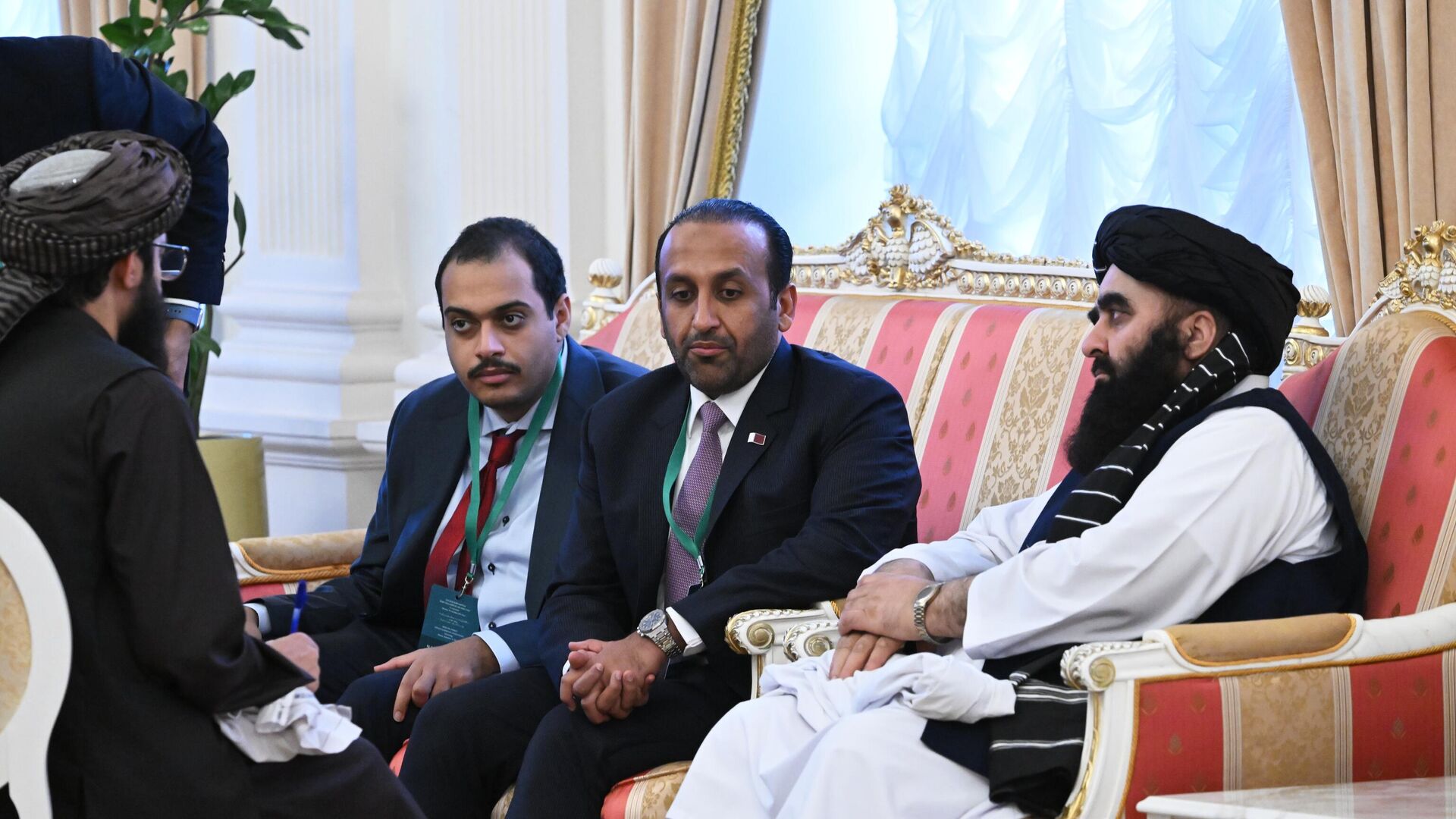Why Are Moscow Format Talks Critical for Stabilizing Situation in Afghanistan?
17:11 29.09.2023 (Updated: 17:41 29.09.2023)

© Sputnik / Maxim Bogodvid
/ Subscribe
The Russia-headed 'Moscow Format' talks geared towards stabilizing the political, security and humanitarian situation in Afghanistan took place Kazan, Russia, on Friday.
The 'Moscow Format' talks are a critical dialogue platform to pressure the Taliban* to fulfil its international obligations, including forming an inclusive government, combat drug trafficking and uphold the rights of women and minorities, an Indian expert has told Sputnik India.
Strategic affairs analyst Qamar Agha underscores the point that Russia will continue to remain an "influential player" in Afghanistan and the region inspite of US-led efforts to cut down Moscow's role in the region.
"Contrary to what the US and its western allies would like to believe, Russia's influence in the neighbourhood and in other developing countries has not decreased as such. It may even be increasing, particularly in Africa," Agha stated.
The geopolitical analyst noted that most of the Central Asian countries, as well as India, China, Iran, Pakistan, all of which are represented in Moscow Format consultations, view Russia as an important player to achieve the objectives.
Agha also stressed the point that Russia has had “longstanding concerns” about the spilling over of terrorism from Afghanistan and central Asia to its own backyard.
He noted that Moscow remains particularly concerned about the activities of Daesh** in Afghanistan.
“Russia also has a large Muslim population and has in the past faced terrorism concerns in some of its Islamic republics. It has valid reasons to stay engaged in Afghanistan,” Agha stated.
In fact, the interim Afghan foreign minister Amir Khan Muttaqi met Russia’s Grand Mufti Ravil Ainuddin during his ongoing visit to Russia this week.
During the meeting, Muttaqi described Tatarstan as the “link between Russia and the Islamic world”, according to an interim Afghan foreign ministry statement.
The Taliban minister expressed hope that the Russian Grand Mufti would play a role in strengthening ties between Moscow and Kabul.
The History of Moscow Format Talks
The Moscow Format dialogue mechanism on Afghanistan was launched in 2017 with the primary goal of facilitating an intra-Afghan political settlement to stabilize the situation in the country.
The Russia-headed regional mechanism has assumed greater significance since the Taliban takeover in August 2021.
While the countries involved in the platform are yet to accord a full-fledged recognition to the Taliban, they have sought to engage with the new rulers in Kabul on security, humanitarian and of late, economic matters.
The fourth meeting under the Moscow Format was held last November, being attended by senior officials from Russia, China, Pakistan, Iran, India, Kazakhstan, Kyrgyzstan, Tajikistan, Turkmenistan and Uzbekistan, as per a Russian readout.
It was also attended by officials from Qatar, UAE, Saudi Arabia and Turkiye.
"They emphasised the importance of creating a truly inclusive government in Afghanistan, which would reflect the interests of the key ethno-political groups and the need to remove the terrorist, drug and other threats emanating from that country," a statement after the meeting said.
Further, the participants backed greater coordination among regional nations in stabilizing the Afghanistan situation.
The delegates also urged the US to unfreeze Afghanistan's frozen assets, as well as called upon the western allies to "compensate" Kabul for the economic and human losses suffered during the War on Terror.
The Taliban wasn't represented at the last year's meeting.
Afghanistan Critical for Russia’s National Security: Think-tanker
Commodore (retired) Seshadri Vasan, an Indian Navy veteran and the Director of Chennai-based think tank Centre for China Studies (C3S), underlined that Moscow, along with the US, would continue to remain a strong player in the Afghanistan scenario.
“Moscow’s engagement with Afghanistan is not new. It has always considered Afghanistan critical for its national security interests and even backed a former Afghan government in the lead-up to Soviet-Afghan war,” Vasan stated.
During Muttaqi’s current Russia visit, he met Russian President Vladimir Putin’s aide Ruslan Edelgeriev, according to a Taliban readout.
"In the meeting FM Muttaqi stressed strengthening political and economic ties between the two countries, taking pragmatic steps," the Taliban said.
India ‘Losing the Plot’ in Afghanistan: Vasan
Vasan went on to express concerns about India's "decreasing" influence in Afghanistan.
"India seems to have lost plot in Afghanistan," stated Vasan, a reference to a toned down Indian diplomatic presence in Kabul in the wake of the Taliban takeover.
He compared India's overtures to the Taliban regime with that of China's, which recently posted an ambassador in Kabul. Beijing has also been looking to expand the China-Pakistan Economic Corridor (CPEC), a flagship initiative of the Belt and Road Initiative (BRI), to Afghanistan, amid growing economic and political ties between the two countries.
Vasan suggested that cooperation with Russia could help India in regaining some of the lost political ground in Afghanistan.
“But, so far, we haven’t seen any concrete results for India,” he added.
New Delhi has said it will keep Afghanistan "close to our hearts" against the backdrop of Indian government's continuing humanitarian aid to the people of Afghanistan.
"India will persistently raise its voice in support of the Afghan people. The pursuit of peace and stability in Afghanistan is an urgent and shared imperative that demands our collective dedication.
*under UN sanctions
**banned terrorist group in Russia


